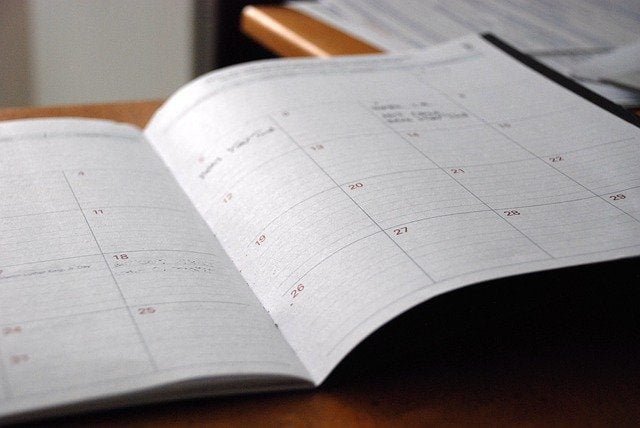How Do Wealthy People Lower Their Tax Rates?
Have you ever wondered if you are paying more taxes than you owe? Industry experts estimate that 2 million Americans overpay their taxes every year. The overpayment is estimated at $1 billion annually. How can you make sure that you are not one of these Americans who is paying more taxes than they owe?
Wealthy people with more complicated returns and a variety of income streams are often in the best position for employing strategies to lower their tax rates. Billionaire Warren Buffet claimed that he paid a lower tax rate than his secretary, for example, because most of his wealth was in company stocks rather than a salary. Buffet was not bragging about tax evasion but illustrating the fact that his wealth put him in a position to use tactics and deductions that are unavailable to someone on a middle-class income. Incidentally, Buffet used this memorable example to bolster his argument that wealthy people (like him) should be paying a higher tax rate than the law currently demanded.
Perhaps you have some passing familiarity with some of the strategies that wealthy people use to avoid overpaying income tax: contributing to investment accounts, creating an HSA (Health Savings Account), starting a 529 Education fund, creating an LLC (Limited Liability Corporation) as an umbrella company to manage multiple investments, creating a defined benefit plan, to name a few.
These are all important tips worth considering. However, these are only five strategies for lowering your tax rate out of dozens or hundreds. So how do you know which of these strategies applies to your unique situation? The chances are high that you may not know unless you are an experienced and well-trained tax professional. That is why the #1 pro-tip that the wealthy use for lowering their tax rate is to hire a tax professional.
A tax pro, you say? Isn’t that for rich people?
Not so fast. Before you make a decision, consider this real-life example:
My husband and I grew up with middle class parents who cleaned their own homes and even fixed their own cars on occasion. They canned fruit during harvest season, and many of our clothes were sewn by hand. For our parents, hiring an income tax lawyer to file our family’s tax return would have seemed as unnecessary – as uppity – as hiring a butler.
Perhaps that’s why I felt so conspicuous the first time I walked into the office of an income tax lawyer. I was in my late 20s and living in New York City. My spouse and I had filed our joint tax return for several years, too, just like our parents. But this year, a few things had changed. We’d had a baby. My husband was in graduate school and had a military income. I was using precious space in our tiny NY apartment to run two separate small businesses. Taxes were becoming more complicated.
The year that I first paid a tax attorney, I spent hours working through our federal tax return using a highly-recommended computer program and still felt unsteady on my feet. What if we got audited? I was not at all sure that my tax assumptions were legally viable.
So, after I had figured out our combined tax return to the best of my ability, I took our taxes to a recommended tax attorney as a trial. How would my tax return compare to the tax attorney’s?
Like so many others before and after me, I found that hiring the tax attorney more than paid for itself. Even after paying the attorney’s fee, we saved significantly on our taxes that year as compared to the return that I would have filed on my own.
We haven’t looked back – we’ve hired a tax professional every year since. Besides paying a lower tax rate, we have benefited from the peace of mind that comes with knowing that any audit would be managed by someone else.
This example mirrors the experience of many people who have availed themselves of professional tax help. Without a tax professional or the right software, the chances are high that you’ll miss some credits and deductions to which you are legally entitled. Once you are in a position to diversify your retirement accounts, invest in real estate, or if you are managing multiple income streams, then getting tax help is the best method to reduce your tax rate safely.
Software programs are increasingly helpful. They can allow you to reduce your taxes by asking you basic questions about your life, probing for possible deductions. But software programs are somewhat limited in making suggestions or in dealing with big life changes, starting a business, or strategizing for multiple incomes and investment streams.
Of all the tax-reducing strategies, the one that most wealthy people have in common is hiring a tax professional to help them apply the tax code to their unique situation. Some wealthy people start multi-generational trusts; some don’t. Some wealthy people invest in opportunity zone programs as a way to defer capital gains; some don’t. What about adding energy-efficient improvements to my home and deducting the cost? There are so many ways to reduce the tax burden that it would take hours for an individual taxpayer to research them all.
Do you imagine Warren Buffet filing his own taxes rather than hiring a tax attorney? Do you imagine him sitting up late at night in front of his laptop, talking back to a tax filing software program? I don’t either.
How do wealthy people lower their tax rates? First and foremost, they hire qualified and experienced tax professionals.







